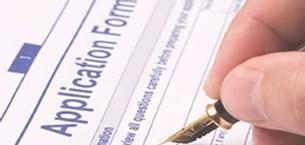Shreyashi Pathak Study Abroad Expert
Study Abroad Expert
A Social Security Number (SSN) is a nine-digit number issued by the U.S. government to track income, file taxes, and establish financial identity. An SSN is mandatory for F1 students planning to work in the U.S., either through on-campus employment or approved programs such as Curricular Practical Training (CPT) or Optional Practical Training (OPT). However, if you’re not working, an SSN is usually not required.
To apply for an SSN, you need a job offer or valid work authorization and documents like your passport, F1 visa, I-20 form, and a letter from your university’s Designated School Official (DSO). Applications must be submitted in person at a Social Security Administration (SSA) office, and it takes about 2–4 weeks to receive the SSN card. Additionally, students should know that applying for an SSN in the U.S. is completely free, so there are no fees involved in the process.
- Why Do F1 Visa Holders Need It?
- Eligibility Criteria for Obtaining an SSN on an F1 Visa
- Documents Required for SSN Application for F1 Visa Holders
- Step-by-Step Guide to Applying for an SSN as an F1 Student
- Understanding SSN Usage: Rights and Limitations for F1 Students
- Common Misconceptions About SSNs for International Students
- FAQs
Why Do F1 Visa Holders Need SSN?
For F1 visa holders (as international students in the U.S.), an SSN is essential if you plan to work. While an SSN is not mandatory for studying or everyday activities like opening a bank account or renting an apartment, it becomes necessary when you:
- Work On-Campus or Off-Campus (with proper authorization): You need an SSN to report your income for tax purposes.
- Engage in Curricular Practical Training (CPT) or Optional Practical Training (OPT): These programs allow you to gain work experience related to your studies, and an SSN is required to get paid.
- File Taxes: Even as a student, if you work, you must file taxes in the U.S. Having an SSN simplifies the process.
- For Financial Activities:While not mandatory for all banking needs, some banks may ask for an SSN when opening accounts or applying for credit cards.
Also Check - Job Opportunities in USA for Indian Students
Eligibility Criteria for Obtaining a Social Security Number
The table below outlines the eligibility criteria for obtaining an SSN on an F1 visa:
| Criterion | Details |
|---|---|
| Visa Type | Must hold an F1 visa (international student visa). |
| Work Authorization | Must have valid work authorization, either for on-campus jobs, CPT, or OPT. |
| On-Campus Employment | Must have secured a job on campus. Employment can be up to 20 hours per week during academic terms. |
| Curricular Practical Training (CPT) | Must have CPT authorization, which allows work as part of the academic curriculum. |
| Optional Practical Training (OPT) | Must have OPT authorization to work temporarily in the U.S. after completing studies. |
| Social Security Administration (SSA) Rules | Must meet SSA requirements, which usually include valid work documentation from the university or employer. |
| University Endorsement | The university's Designated School Official (DSO) must provide a letter confirming work authorization. |
| Documentation | Must provide required documents (passport, I-94, I-20 form, and job offer letter) when applying. |
| Non-Work Reasons | F1 students cannot get an SSN if they do not plan to work, as the SSN is issued only for work purposes. |
Documents Required for SSN Application for F1 Visa Holders
The table below lists the documents required for F1 students to apply for an SSN:
| Document | Why It’s Needed |
|---|---|
| A Valid Passport | To verify your identity and nationality. |
| F1 Visa | Proof of your legal entry and status in the U.S. |
| Form I-94 | Arrival/Departure record to confirm your U.S. entry details (available online). |
| Form I-20 | Certificate of Eligibility showing your F1 status and program enrollment. |
| Job Offer Letter | To confirm your employment (required for on-campus jobs). |
| DSO Work Authorization Letter | A letter from your university’s Designated School Official confirming work eligibility. |
| OPT/CPT Authorization | (If applicable) Updated I-20 with CPT or an EAD card for OPT work authorization. |
| Form SS-5 | Completed Social Security Number application form (available online or at SSA office). |
Also Check - F1 Visa Application: A Comprehensive Guide
Step-by-Step Guide to Applying for an SSN as an F1 Student
Listed below are the steps F1 students need to follow to apply for an SSN:
- Secure a job on-campus or through CPT/OPT with valid authorization.
- Request a job offer letter from your employer confirming your employment details.
- Obtain a work authorization letter from your university’s DSO confirming your eligibility to work.
- Gather necessary documents, including your passport, visa, I-20, I-94, job offer letter, and DSO letter.
- Complete the Social Security Number application form (Form SS-5) accurately.
- Visit the nearest Social Security Administration (SSA) office with all the required documents.
- Submit your application in person to the SSA officer for verification.
- Receive your SSN card by mail within 2–4 weeks of applying.
- Use your SSN responsibly for work, taxes, and financial purposes.
- Keep your SSN secure to avoid identity theft or misuse.
Understanding SSN Usage: Rights and Limitations for F1 Students
The table below shows the rights and limitations of SSN usage for F1 students:
| What You Can Do | What You Cannot Do |
|---|---|
| Work Legally: Use your SSN to get paid for campus jobs or approved CPT/OPT work. | Non-Work Tasks: You can’t use your SSN as a general ID for renting apartments or getting a driver’s license. |
| File Taxes: Use your SSN to report your income and file taxes every year. | Unauthorized Work: You can’t use your SSN for jobs you’re not authorized to do. |
| Open Bank Accounts: Some banks need an SSN to open accounts or apply for credit cards. | Sharing SSN: Don’t share your SSN with anyone unless absolutely needed to avoid fraud or misuse. |
| Build Credit History: Helps create a financial record and credit score in the U.S. |
Common Misconceptions About SSNs for International Students
As an international student in the U.S., it’s easy to get confused about the purpose and use of a Social Security Number (SSN). Let’s clear up some common myths and misconceptions:
- You need an SSN to study in the U.S.: This is false. An SSN is not required to study in the U.S. It’s only necessary if you plan to work or need it for specific financial activities like filing taxes or building credit.
- You can use an SSN as general ID: Many students think an SSN can be used for everyday tasks like renting an apartment or getting a driver’s license. This isn’t true. An SSN is specifically for work and tax-related purposes. For other tasks, your passport or student ID usually works.
- All international students can get an SSN: Not every student is eligible. You must have a job offer or work authorization (like CPT/OPT) to apply for an SSN. Without a valid reason, the Social Security Administration won’t issue one.
- You can work anywhere once you have an SSN: Getting an SSN doesn’t mean you can work freely in the U.S. As an F1 student, you’re only allowed to work on-campus or through authorized programs like CPT/OPT. Unauthorized work violates your visa terms.
- You can apply for an SSN without a job: This is incorrect. You need proof of employment, such as a job offer letter, or a work authorization document to apply for an SSN.
- Your SSN is temporary as a student: Your SSN is permanent and remains valid for life. Even if your visa expires or you leave the U.S., the number is yours forever.
- Sharing your SSN is safe: Some students think it’s okay to share their SSN for casual purposes. This is risky. Your SSN should only be shared with trusted entities like banks or government agencies, as misuse can lead to identity theft.
- You can’t open a bank account without an SSN: Most banks allow international students to open accounts without an SSN. You can use other documents like your passport and I-20.
Lastly, Students are advised to apply for an SSN only after confirming all work-related documents are complete and accurate to avoid delays. Additionally, keeping your SSN secure is crucial, as misuse can affect your visa status and future opportunities in the U.S.
FAQs
Ques Can I apply for an SSN without a job?
Ans No, you need a valid job offer or work authorization (like CPT or OPT) to apply for an SSN.
Ques Does having an SSN mean I can work anywhere?
Ans No, as an F1 student, you can only work on-campus or through authorized programs like CPT or OPT.
Ques Do I lose my SSN after my studies are over?
Ans No, your SSN is permanent and remains valid for life, even if you leave the U.S.
Ques Is it safe to share my SSN with others?
Ans No, you should only share your SSN with trusted organizations like banks or government agencies. Avoid sharing it casually to prevent identity theft.
Ques What happens if I work without an SSN?
Ans Working without proper authorization or an SSN violates your visa terms and can lead to serious legal consequences.
Ques Can I apply for an SSN online?
Ans No, as an F1 student, you must apply for an SSN in person at a Social Security Administration (SSA) office.











Comments